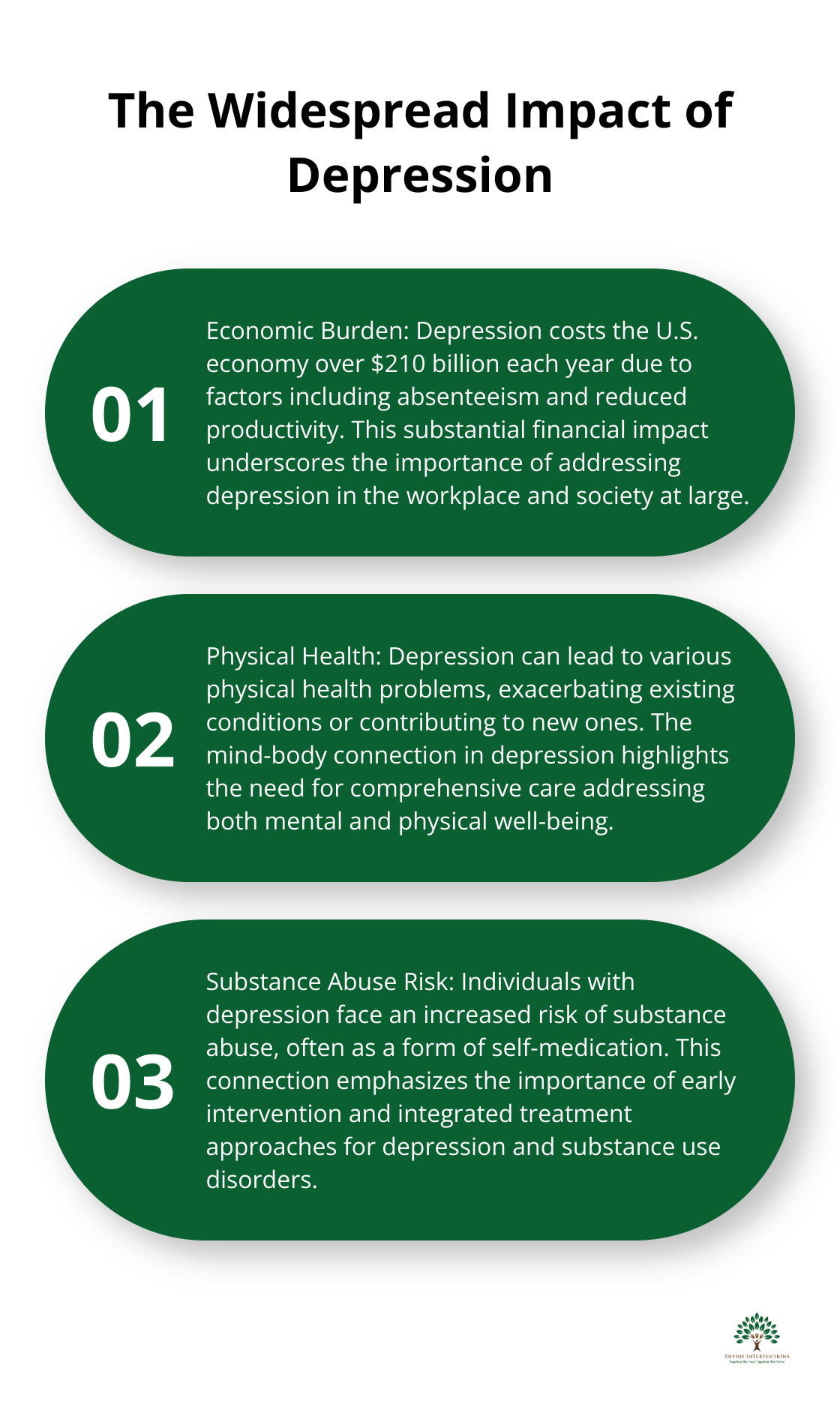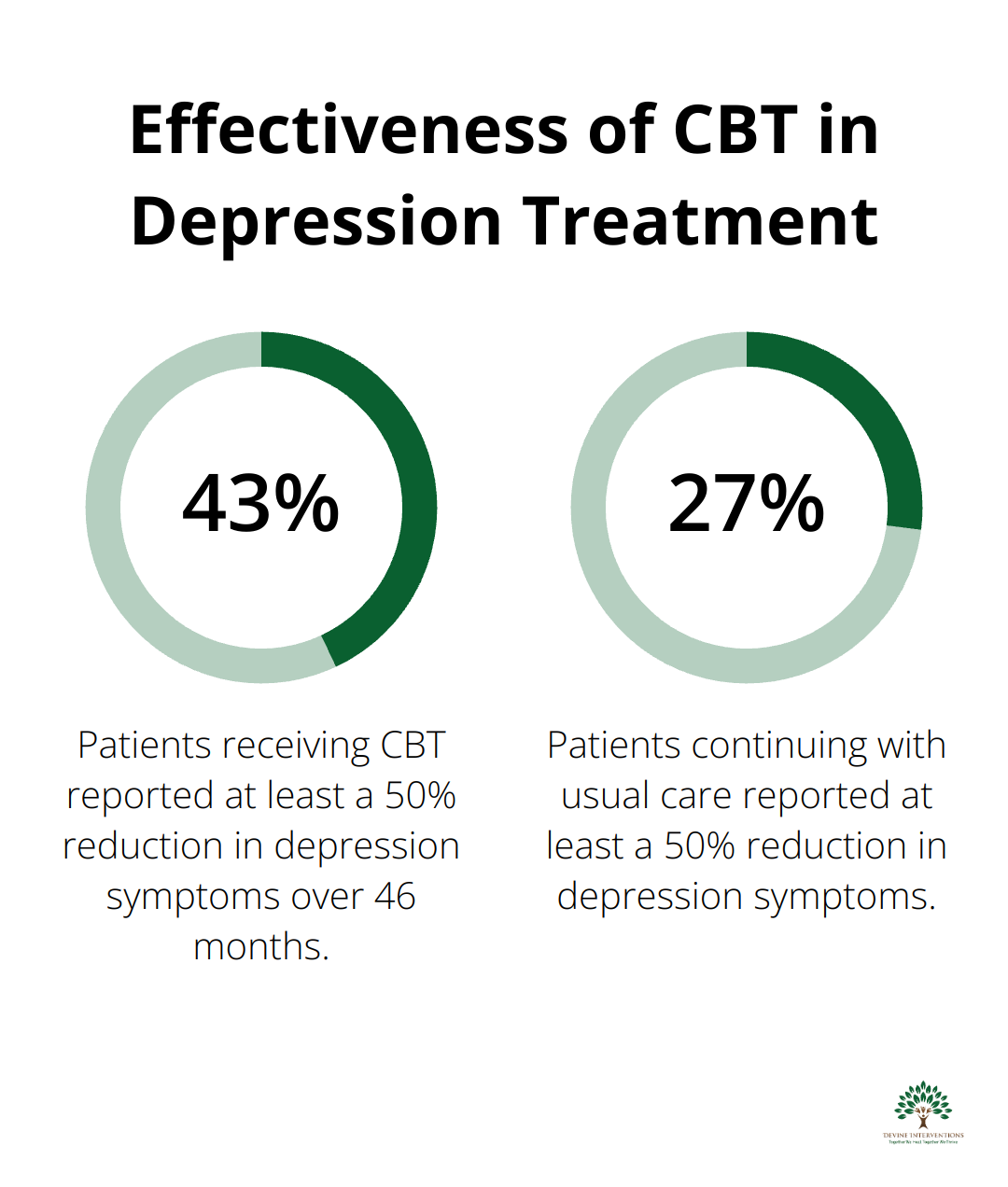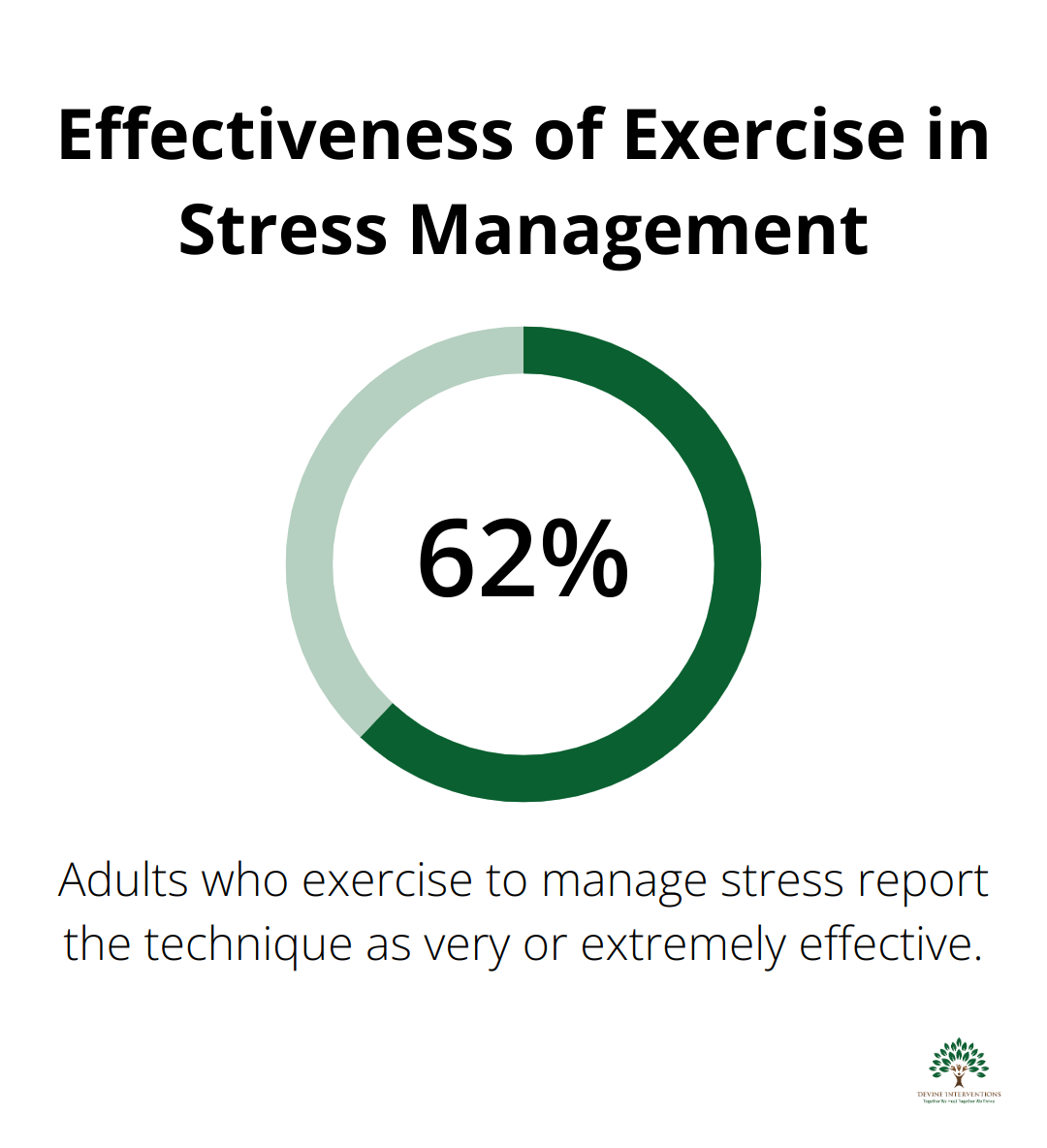Depression can be an overwhelming and isolating experience, but you don’t have to face it alone. At Devine Interventions, we understand the complexities of this condition and the courage it takes to seek help.
Our supportive environment is designed to guide you through every step of your recovery journey. This post will explore how to recognize depression, the benefits of professional help, and ways to build a strong support system for lasting healing.
What Is Depression Really Like?
The Complex Reality of Depression
Depression extends far beyond mere sadness. It’s a multifaceted mental health condition that affects millions worldwide. In the United States alone, recent data from the National Survey on Drug Use and Health (NSDUH) provides indicators of substance use and mental health based on data from 2017 and earlier.
Diverse Manifestations of Depression
Depression presents differently for each individual. Some experience persistent sadness, while others feel numb or empty. Physical symptoms often include fatigue, appetite changes, and sleep disturbances. Many struggle with concentration, decision-making, and memory issues.
Debunking Depression Myths
One harmful misconception about depression is that it’s a choice or indicates weakness. This is entirely false. Depression is a legitimate medical condition with biological, psychological, and social factors at play.
Another myth suggests depression always has an obvious cause. While traumatic events or life changes can trigger depression, it sometimes develops without a clear reason. This doesn’t diminish the validity or difficulty of the experience.
The Widespread Impact of Depression
Depression’s effects reach far beyond emotional distress. It can lead to physical health problems, increase substance abuse risk, and in severe cases, result in suicidal thoughts or behaviors. The economic burden is substantial, with depression costing the U.S. economy over $210 billion each year due to factors including absenteeism and reduced productivity.

Recognizing Depression and Taking Action
Identifying depression marks the first step towards recovery. If you’ve felt persistently sad, hopeless, or disinterested in once-enjoyed activities for two weeks or more, it’s time to seek help. Reaching out demonstrates courage and a commitment to reclaiming your life.
At Devine Interventions, we offer a range of services tailored to unique needs, from individual therapy to intensive outpatient programs. Our experienced professionals provide compassionate care and evidence-based treatments to help overcome depression and build a brighter future.
The Role of Professional Support
Professional help plays a vital role in managing depression effectively. Therapy and medication management can provide the tools and support needed to navigate this challenging condition. The next section will explore the importance of seeking professional help and how it can transform your journey towards recovery.
Why Professional Help Is Essential
The Transformative Power of Therapy
Professional help plays a vital role in managing depression effectively. Therapy provides a safe space to explore thoughts and feelings. Cognitive Behavioral Therapy (CBT), a common approach, helps identify and change negative thought patterns. A long-term study found that 43% of patients who received CBT reported at least a 50% reduction in depression symptoms over 46 months, compared to 27% who continued with usual care.

Medication as a Valuable Tool
For some individuals, medication forms a key part of treatment. Antidepressants can help balance brain chemistry, alleviating symptoms and improving quality of life. Research shows that antidepressant treatment was effective in those with both mild (50 versus 37 percent remission) and severe symptoms (38 versus 25 percent remission).
Personalized Treatment Plans
Professional care allows for the creation of individualized treatment plans. This might include a combination of therapy, medication, and lifestyle changes. A tailored approach (considering unique needs and circumstances) ensures the most effective care possible.
The Importance of Case Management
Case management forms a key component of comprehensive depression treatment. Case managers coordinate care, connect clients with community resources, and provide ongoing support. This holistic approach addresses not just symptoms, but also life circumstances that may contribute to depression.
Overcoming Barriers to Seeking Help
Many people hesitate to seek professional help due to stigma or fear. However, reaching out for support demonstrates strength and commitment to recovery. Professional care offers tools, strategies, and support that can significantly improve quality of life.
As we explore the next steps in depression recovery, it’s important to consider how building a strong support system can complement professional treatment and enhance overall well-being.
How to Build a Strong Support System for Depression Recovery
Involve Family and Friends
Depression recovery doesn’t happen in isolation. Open communication with family and friends forms a cornerstone of effective support. Share your experiences and needs with trusted individuals. Educate them about depression to foster understanding and reduce stigma. The National Alliance on Mental Illness reports that 64% of people with mental illness say their condition improved with family support.
Consider inviting a family member or close friend to therapy sessions. This provides them with insights into your treatment and equips them with tools to support you effectively. Family therapy sessions can strengthen relationships and create a more supportive home environment.
Tap into Community Resources
Support groups offer invaluable peer connections. They can help you feel less lonely, alone or judged, and can ease distress, depression, anxiety or fatigue. Look for local support groups or online communities where you can share experiences and learn from others.
Engage with community organizations that align with your interests. Volunteering or participating in group activities combats isolation and provides a sense of purpose. A study in the Journal of Happiness Studies found that volunteers were 12% more likely to report being very happy compared to non-volunteers.
Develop Healthy Coping Mechanisms
Incorporate stress-reduction techniques into your daily routine. Regular exercise proves as effective as medication for some people with mild to moderate depression. The American Psychological Association reports that 62% of adults who exercise to manage stress say the technique is very or extremely effective.

Mindfulness practices also serve as powerful tools. A recent study found that mindfulness-based cognitive therapy (MBCT) significantly reduces the risk of relapse in individuals with three or more previous episodes of depression, especially those not triggered by significant life events.
Try to develop personalized coping strategies that complement your treatment plan. This might include journaling, art therapy, or learning relaxation techniques tailored to your preferences and lifestyle.
Create a Supportive Environment
Your physical environment plays a significant role in your mental health. Try to create a living space that promotes relaxation and positivity. This might involve decluttering, adding plants (which have been shown to reduce stress), or creating a dedicated relaxation area.
Establish a routine that supports your mental health. This includes regular sleep patterns, healthy eating habits, and scheduled time for self-care activities. Consistency in your daily life can provide a sense of stability and control, which is particularly beneficial when managing depression.
Utilize Technology for Support
In today’s digital age, technology offers numerous tools for mental health support. Mental health apps (such as mood trackers or meditation guides) can complement professional treatment. Online forums and social media groups dedicated to mental health can provide additional support and connection.
However, it’s important to use these tools judiciously. Excessive screen time or exposure to negative online content can exacerbate depression symptoms. Balance your online engagement with offline activities and real-world connections.
Final Thoughts
Depression can feel overwhelming, but you don’t have to face it alone. We at Devine Interventions offer a range of services tailored to individual needs, combining evidence-based practices with compassionate care. Our approach addresses not just symptoms but the whole person, providing the tools and support needed for lasting recovery.
Taking the first step towards healing shows strength, not weakness. Whether you struggle with depression yourself or support a loved one, professional help can transform your journey. Recovery is possible, and with the right support, you can build a brighter, more fulfilling future.
Don’t let depression define your life. Reach out to Devine Interventions today and start your journey towards healing in a safe, supportive environment. You deserve to live a life filled with hope, joy, and purpose (and we’re here to help you get there).







